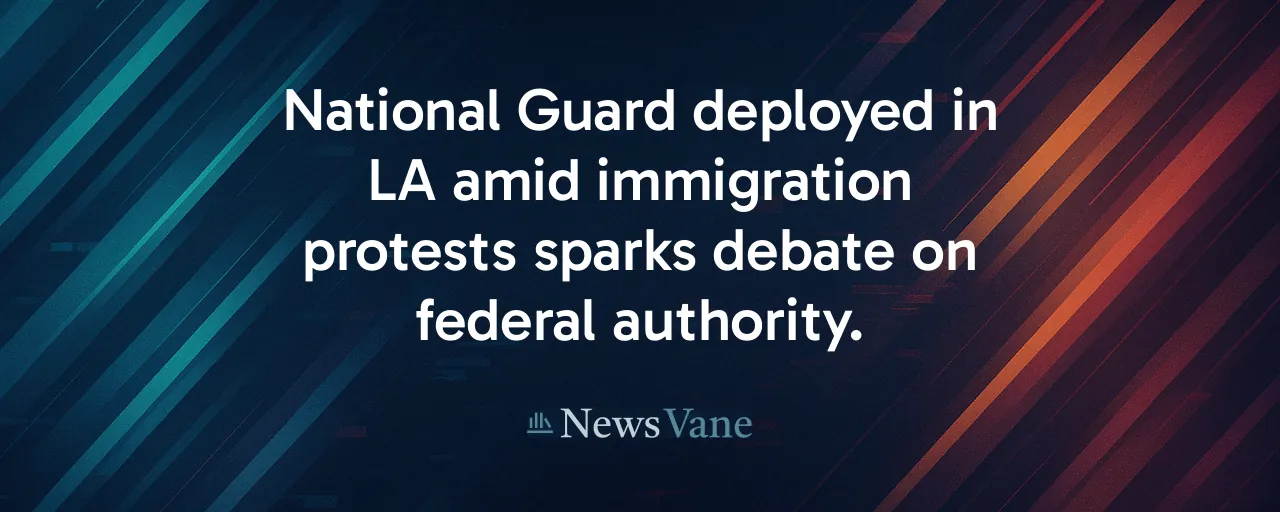A City on Edge
On June 7, 2025, Los Angeles residents faced an unfamiliar scene: 2,100 National Guard troops and 700 Marines stationed across the city. President Trump ordered the deployment, citing risks to federal facilities during protests over immigration policies. The $134 million operation has sparked intense discussion about the military's place in domestic life and the fragile balance between federal authority and state control.
For Angelenos, the sight of armed troops stirs unease. Some see the move as excessive, while others believe it addresses genuine threats. Veterans, city officials, and legal experts are now wrestling with the deeper implications for public safety, democratic norms, and the bonds between communities and their protectors.
Voices From the Ranks
Veterans have emerged as vocal critics of the deployment. Janessa Goldbeck, a former Marine, argues that using troops for domestic policing risks casting the military as a political weapon. She highlights the financial burden on taxpayers, framing the operation as more about projecting power than ensuring safety. Shawn VanDiver, a Navy veteran, agrees, stating that pitting service members against civilians undermines the constitutional oath they swore to uphold.
Kyle Bibby, once a Marine captain, calls the deployment a leadership failure, arguing it disrupts local efforts to manage tensions. While most veterans oppose the move, some acknowledge the challenge of protecting federal sites during unrest. Their perspectives underscore a shared belief that the military's purpose involves defending the nation, a role distinct from patrolling its streets.
A Legal and Historical Crossroads
The deployment hinges on a June 7 memorandum invoking Title 10, which permits federalizing the National Guard to counter rebellion or enforce federal law. California Governor Gavin Newsom, however, was not consulted, prompting accusations of constitutional overreach. Legal experts note that the law typically requires gubernatorial consent, a precedent set in cases like the 1957 Little Rock integration effort, where federal action supported a court order.
Domestic military interventions have a complex history. From the 1794 Whiskey Rebellion to the 1992 Los Angeles riots, federal troops have stepped in during rare crises, often sparking controversy. The 1878 Posse Comitatus Act restricts military roles in civilian law enforcement. Critics argue that using troops to protect federal property, as in this case, tests those limits and could pave the way for broader interventions.
The Clash of Federal and State Power
At the core of this dispute is the tug-of-war between Washington and Sacramento. Some Republican lawmakers defend the deployment, arguing that federal facilities demand protection amid growing protests, which swelled from 250 to over 3,000 participants after troops arrived. They view the action as a necessary assertion of national authority.
California leaders counter that local police were handling the situation without federal aid. State and city officials had already bolstered law enforcement presence, and no request for federal troops was issued. The state's lawsuit against the deployment claims it violates California's right to control its National Guard, an action that has only escalated tensions.
Ripples Beyond Los Angeles
The deployment's significance extends far beyond California. With only 0.5% of Americans serving in the military, a growing disconnect between civilians and the armed forces risks portraying troops as a distant elite, according to the Center for a New American Security. Civil liberties advocates, including the ACLU, warn that military presence can deter free expression, with research showing protests shrink by up to 17% when troops are visible.
This action also reflects broader concerns about expanding presidential power. A 2025 Brookings report flags the U.S. as a 'flawed democracy,' citing executive actions like emergency fund reallocations. The militarization of local police, fueled by programs transferring $7.6 billion in military gear, further blurs the line between civilian and military roles, raising questions about democratic accountability.
Charting the Path Forward
As Los Angeles seeks stability, local leaders prioritize de-escalation, calling for cooperation between residents and police to restore calm. Veterans like Akilah Templeton stress the moral burden on service members, who deserve missions rooted in democratic principles. The ongoing legal fight over the deployment's legitimacy will likely shape how federal and state powers align in future crises.
The presence of troops in American cities has forced a national reckoning with issues of trust and governance. It challenges the nation to define the military's role in a democracy and to ensure that security measures do not erode freedoms.
For communities, service members, and policymakers, the stakes are real: a city striving for peace, troops navigating a political firestorm, and a country grappling with its democratic identity. Resolving these tensions demands open dialogue, clear accountability, and a renewed commitment to shared values.
